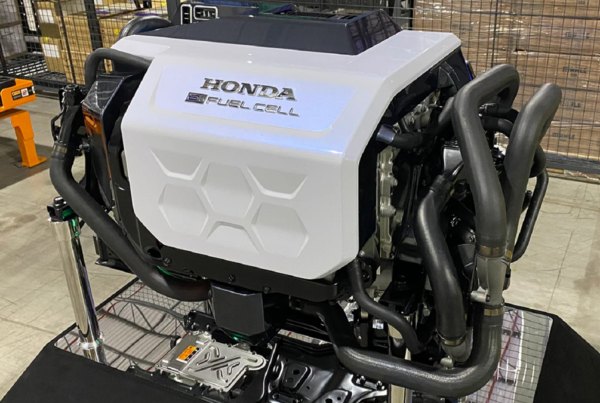
Stuttgart. SMART TESTSOLUTIONS has developed a discharge tester for fuel cells that gives developers a deep insight into the individual cells of a fuel cell stack. In addition to the individual cell voltages, the internal resistances of individual cells or cell groups can be determined or their degradation behaviour observed.
The tester combines a CVM system for monitoring the individual cell voltages of a fuel cell with a relay matrix for the targeted connection of power resistors. In this way, one or more cells can be selectively loaded or discharged and the voltages in the cells can be measured at the same time. “This makes it possible to determine how homogeneous the cells of a fuel cell stack are at the beginning of their life cycle and how inhomogeneous they become after a certain number of load cycles, a certain running time or due to changes in the mixing ratios of the gases used,” explains Norbert Witteczek, who is responsible for the test systems product area at SMART TESTSOLUTIONS.
Normally, the current taps are located at the first and last cell of a stack or at the so-called end plates. The cells are connected in series, so it is not possible to selectively load individual cells or a group of cells. If the hydrogen supply of the stack is switched off, the voltages in the individual cells do not immediately drop to zero, as there are still gas residues in the individual cells. “This can prolong the complete discharge of the cells beyond a safety-relevant time. Depending on the application, this poses a risk,” says Witteczek. Here, too, the discharge tester provides valuable information in test operation, as the operating strategy of the overall system can be adapted to the individual behaviour of the cells.
SMART TESTSOLUTIONS is primarily known in the eMobility environment for its systems for cell voltage monitoring on fuel cells (Cell Voltage Monitoring / CVM). In addition, the Stuttgart-based company develops test systems for other eMobility applications – for example, the end-of-line test of complete battery systems. Depending on the customer’s requirements, both the company’s own high-voltage system modules for measured value acquisition, load and sensor simulation as well as third-party components are used.
Read the most up to date Fuel Cell and Hydrogen Industry news at FuelCellsWorks




